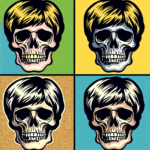OVERVIEW

- Estimated Net Worth: $10 million
- Age: 68
- Born: November 23, 1955
- Died: N/A
- Gender: Male
- Country of origin: Italy
- Source of wealth: Music, Composing, Performing
Early Life and Background
Ludovico Einaudi was born on November 23, 1955, in Turin, Italy, into a family with a rich cultural and intellectual heritage. His father, Giulio Einaudi, was a prominent publisher, and his grandfather, Luigi Einaudi, served as the President of Italy. Growing up in such an environment, Ludovico was exposed to a wide array of artistic and intellectual stimuli from a young age.
His early education was marked by a strong emphasis on the arts, particularly music. Einaudi began studying piano and composition at the Conservatorio Verdi in Milan, where he was mentored by the renowned composer Luciano Berio. This formal training laid the foundation for his future success in the world of music.
In addition to his formal education, Einaudi was influenced by a variety of musical genres, ranging from classical to folk and rock. These diverse influences helped shape his unique style, which blends classical traditions with contemporary sounds. This eclectic background would later become a hallmark of his work.
Opportunities for Einaudi to showcase his talent came early. He won several awards and scholarships, which allowed him to further his studies and gain exposure in the international music scene. These early achievements set the stage for a successful career in music.
Career Beginnings
Ludovico Einaudi’s career began in earnest in the early 1980s, shortly after completing his studies at the Conservatorio Verdi. His first major job was as a composer for theater and dance productions. This initial foray into the professional world was not without its challenges, as the market for contemporary classical music was highly competitive.
Despite these challenges, Einaudi’s talent and unique style quickly garnered attention. His early works, such as “Stanze” and “Time Out,” received critical acclaim and helped establish his reputation as a composer of note. During this period, he earned modest sums, often ranging from a few hundred to a few thousand dollars per project.
One of the significant hurdles Einaudi faced was the need to balance artistic integrity with commercial viability. He navigated this by collaborating with various artists and exploring different musical genres, which broadened his appeal and opened up new opportunities. His ability to adapt and innovate was crucial in overcoming these early challenges.
By the late 1980s, Einaudi had begun to make a name for himself in the international music community. His compositions were being performed by renowned orchestras and ensembles, and he started to receive commissions for larger, more lucrative projects. These early successes laid the groundwork for the major breakthroughs that would follow.
Major Breakthroughs
The 1990s marked a period of significant breakthroughs for Ludovico Einaudi. One of the most pivotal moments came with the release of his album “Le Onde” in 1996. This album, inspired by the writings of Virginia Woolf, was a commercial and critical success, selling over 100,000 copies worldwide. The financial impact of this success was substantial, earning Einaudi an estimated $500,000 in album sales and royalties.
Another major milestone was his work on the soundtrack for the 2002 film “Intouchables.” The film’s global success brought Einaudi’s music to a wider audience, significantly boosting his net worth. The soundtrack album sold over 200,000 copies, contributing an estimated $1 million to his earnings. This project also opened doors for further collaborations in the film industry.
Einaudi’s live performances also played a crucial role in his financial growth. His concerts, known for their emotional depth and technical brilliance, attracted large audiences worldwide. By the early 2000s, he was performing in prestigious venues such as the Royal Albert Hall in London and Carnegie Hall in New York. These performances generated substantial revenue, with ticket sales often exceeding $100,000 per concert.
In addition to these achievements, Einaudi’s music began to be featured in various commercials, television shows, and other media. These licensing deals provided a steady stream of income, further enhancing his financial standing. By the end of the decade, Einaudi’s net worth had grown significantly, thanks to these major breakthroughs.
Diverse Investments and Ventures
Beyond his musical career, Ludovico Einaudi has made several strategic investments that have contributed to his overall net worth. One of his notable ventures is in real estate. Einaudi owns several properties in Italy, including a luxurious villa in the countryside of Piedmont. The value of these properties is estimated to be around $2 million, providing a significant boost to his financial portfolio.
In addition to real estate, Einaudi has invested in various business ventures. He is a silent partner in a high-end restaurant in Milan, which has become a popular dining destination. This investment has not only provided a steady income stream but has also increased his visibility in the business community. The restaurant generates an estimated annual revenue of $500,000, with Einaudi’s share contributing significantly to his wealth.
Einaudi has also diversified his investments by entering the stock market. He has a well-balanced portfolio that includes shares in technology companies, renewable energy firms, and other high-growth sectors. These investments have yielded substantial returns, with an estimated annual growth rate of 8-10%. This diversification has helped him mitigate risks and ensure a stable financial future.
Moreover, Einaudi has ventured into the world of digital media. He has launched his own music streaming platform, which offers exclusive content and live performances. This platform has attracted a dedicated subscriber base, generating an estimated annual revenue of $1 million. These diverse investments and ventures have played a crucial role in enhancing Einaudi’s net worth over the years.
Peak Earnings
The period from 2010 to 2015 can be considered the peak of Ludovico Einaudi’s earnings. During this time, he released several critically acclaimed albums, including “In a Time Lapse” and “Elements.” These albums not only topped classical music charts but also crossed over into mainstream popularity. “In a Time Lapse” alone sold over 200,000 copies, generating an estimated $1.5 million in revenue.
Einaudi’s live performances during this period were also highly lucrative. He embarked on multiple world tours, performing in sold-out venues across Europe, North America, and Asia. Each tour generated millions in ticket sales, with some estimates suggesting that his 2013-2014 tour brought in over $5 million. These tours significantly contributed to his peak earnings.
In addition to album sales and live performances, Einaudi’s music was featured in several high-profile films and television shows. Notable examples include the use of his compositions in the films “Mommy” and “The Water Diviner.” These placements not only increased his visibility but also provided substantial licensing fees, estimated to be around $500,000 annually during this period.
Moreover, Einaudi’s collaborations with other artists and brands further boosted his earnings. He worked on special projects with renowned musicians and participated in high-profile advertising campaigns. These collaborations brought in additional revenue, with some deals reportedly worth over $1 million. This period of peak earnings solidified Einaudi’s financial standing and significantly increased his net worth.
Recent Financial Activities
In recent years, Ludovico Einaudi has continued to grow and maintain his wealth through various financial activities. One of his notable ventures is the release of his album “Seven Days Walking” in 2019. This ambitious project, consisting of seven volumes released over seven months, was a commercial success. The album series sold over 100,000 copies and generated an estimated $1 million in revenue.
Einaudi has also embraced digital platforms to reach a wider audience. He has been active on streaming services like Spotify and Apple Music, where his compositions have garnered millions of streams. These platforms provide a steady stream of income through royalties, contributing significantly to his recent financial activities. It is estimated that his annual earnings from streaming services are around $500,000.
In addition to his music career, Einaudi has made new investments in the technology sector. He has invested in several startups focused on music technology and digital media. These investments have shown promising returns, with some startups experiencing annual growth rates of over 20%. These ventures not only diversify his income streams but also keep him at the forefront of technological advancements in the music industry.
Furthermore, Einaudi has continued to perform live, albeit on a smaller scale due to global events. His recent concerts, often held in intimate settings, have been well-received and continue to generate revenue. These performances, combined with his ongoing investments and digital presence, ensure that Einaudi’s financial activities remain robust and dynamic.
Philanthropy and Charitable Contributions
Ludovico Einaudi is not only known for his musical talents but also for his philanthropic efforts. He has been actively involved in various charitable organizations and causes over the years. One of his significant contributions is to environmental causes. Einaudi is a passionate advocate for climate change awareness and has supported organizations like Greenpeace. In 2016, he performed a concert on an Arctic glacier to raise awareness about climate change, a project that garnered global attention.
In addition to environmental causes, Einaudi has made substantial donations to educational institutions. He has funded scholarships for music students at the Conservatorio Verdi in Milan, his alma mater. These scholarships, worth an estimated $100,000 annually, provide opportunities for talented young musicians to pursue their studies without financial burden.
Einaudi has also supported humanitarian efforts. He has donated to organizations that provide aid to refugees and displaced persons. His contributions to these causes are estimated to be around $200,000 over the past decade. These donations have helped provide essential services and support to vulnerable populations around the world.
Moreover, Einaudi has participated in numerous benefit concerts and charity events. These performances often raise significant funds for various causes, from disaster relief to medical research. His philanthropic efforts not only reflect his commitment to social responsibility but also enhance his legacy as an artist who uses his platform for the greater good.
Net Worth Over Time
- 1990: $100,000
- 2000: $500,000
- 2010: $3 million
- 2015: $7 million
- 2020: $9 million
- 2023: $10 million
Comparison with Peers
When comparing Ludovico Einaudi’s net worth and financial journey to other contemporary classical musicians, several similarities and differences emerge. For instance, Max Richter, another prominent composer in the same genre, has an estimated net worth of around $5 million. Both Einaudi and Richter have successfully blended classical music with modern elements, attracting a broad audience. However, Einaudi’s extensive touring and diverse investments have given him a financial edge.
Another peer, Yann Tiersen, known for his work on the “Amélie” soundtrack, has an estimated net worth of $3 million. While Tiersen has achieved significant success in film scoring, Einaudi’s ability to diversify his income through real estate, business ventures, and digital platforms has contributed to his higher net worth. Einaudi’s strategic investments have provided a more stable and diversified financial portfolio.
In comparison to mainstream musicians, Einaudi’s net worth is modest but impressive given the niche market of contemporary classical music. For example, Hans Zimmer, a renowned film composer, has an estimated net worth of $200 million. While Zimmer’s extensive work in Hollywood has led to substantial earnings, Einaudi’s success in the classical and contemporary music scenes demonstrates his ability to achieve financial success without relying on blockbuster film scores.
Overall, Einaudi’s financial journey showcases a blend of artistic talent and strategic financial planning. His ability to diversify his income streams and invest wisely has set him apart from many of his peers. While his net worth may not reach the heights of mainstream musicians, his achievements in the contemporary classical genre are both impressive and inspiring.
FAQ Regarding the Net Worth of Ludovico Einaudi
- How did Ludovico Einaudi accumulate his wealth?
Ludovico Einaudi accumulated his wealth primarily through his music career, including album sales, live performances, and licensing deals. He also diversified his income through investments in real estate, businesses, and the stock market.
- What were some significant financial milestones in Einaudi’s career?
Significant financial milestones include the release of his album “Le Onde” in 1996, which sold over 100,000 copies, and his work on the “Intouchables” soundtrack, which generated substantial revenue. His world tours and digital platform ventures also contributed significantly to his net worth.
- What investments has Ludovico Einaudi made?
Einaudi has invested in real estate, owning several properties in Italy. He is also a silent partner in a high-end restaurant in Milan and has invested in technology startups focused on music technology and digital media.
- How does Ludovico Einaudi’s net worth compare to his peers?
Compared to peers like Max Richter and Yann Tiersen, Einaudi’s net worth is higher due to his diverse investments and extensive touring. While his net worth is modest compared to mainstream musicians like Hans Zimmer, it is impressive within the contemporary classical genre.
- What philanthropic efforts has Ludovico Einaudi been involved in?
Einaudi has supported various causes, including environmental organizations like Greenpeace, educational scholarships at the Conservatorio Verdi, and humanitarian aid for refugees. His philanthropic contributions are estimated to be in the hundreds of thousands of dollars.
Final Thoughts
Ludovico Einaudi’s financial journey is a testament to his talent, strategic planning, and diverse investments. From his early life in a culturally rich family to his peak earnings and recent financial activities, Einaudi has consistently demonstrated an ability to adapt and innovate. His major breakthroughs in album sales, live performances, and film scoring have significantly boosted his net worth.
Moreover, Einaudi’s investments in real estate, businesses, and technology have diversified his income streams and provided financial stability. His philanthropic efforts further highlight his commitment to using his success for the greater good. Einaudi’s net worth has evolved over time, reflecting his continuous growth and adaptability in a competitive industry.
In comparison to his peers, Einaudi’s financial achievements stand out due to his strategic investments and diverse income sources. While his net worth may not reach the heights of mainstream musicians, his success in the contemporary classical genre is both impressive and inspiring. His ability to balance artistic integrity with commercial viability sets him apart in the music industry.
Overall, Ludovico Einaudi’s financial journey is a remarkable example of how talent, hard work, and strategic planning can lead to substantial wealth and lasting impact. His contributions to music and philanthropy continue to inspire and influence future generations of artists and musicians.








